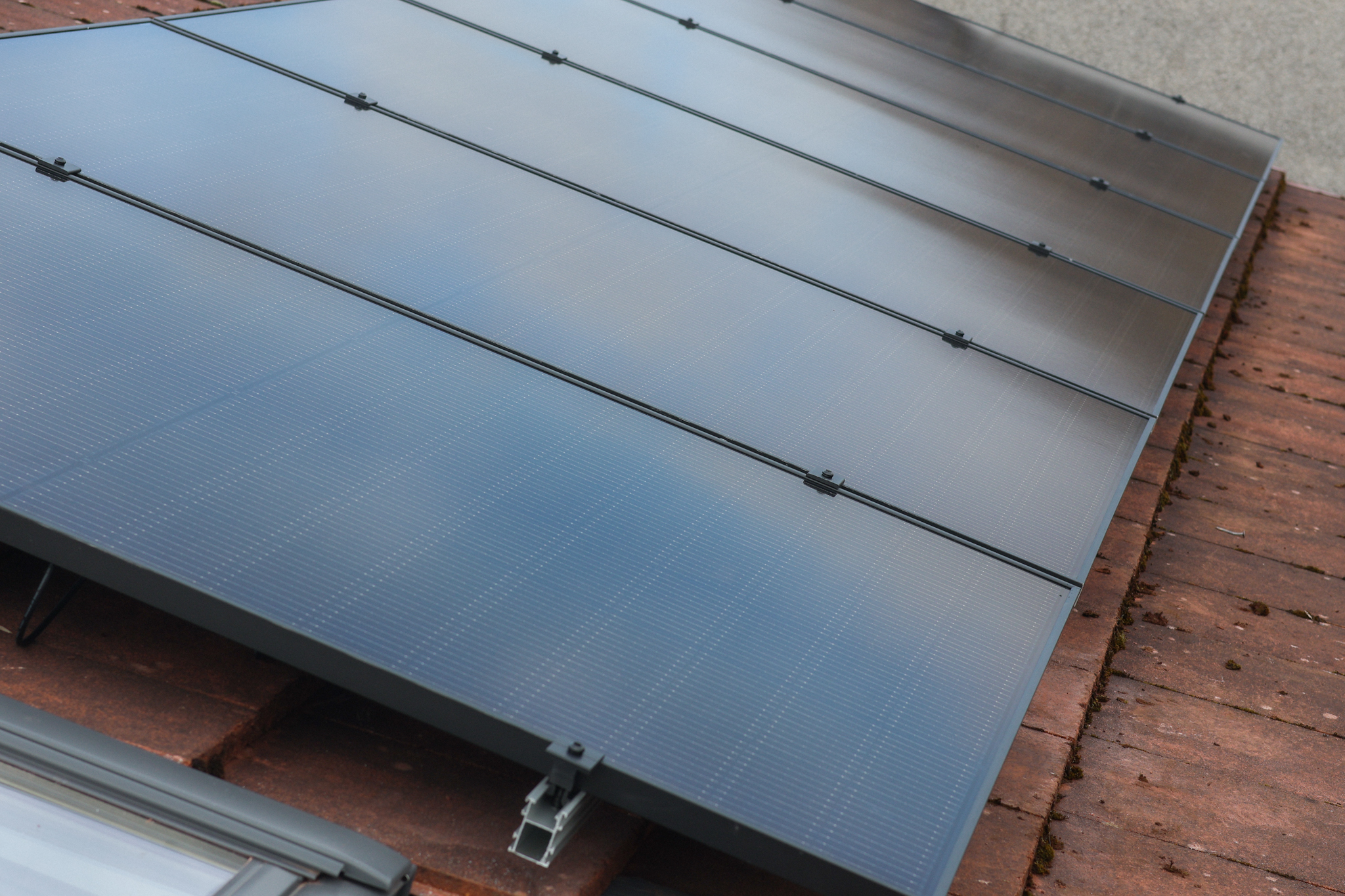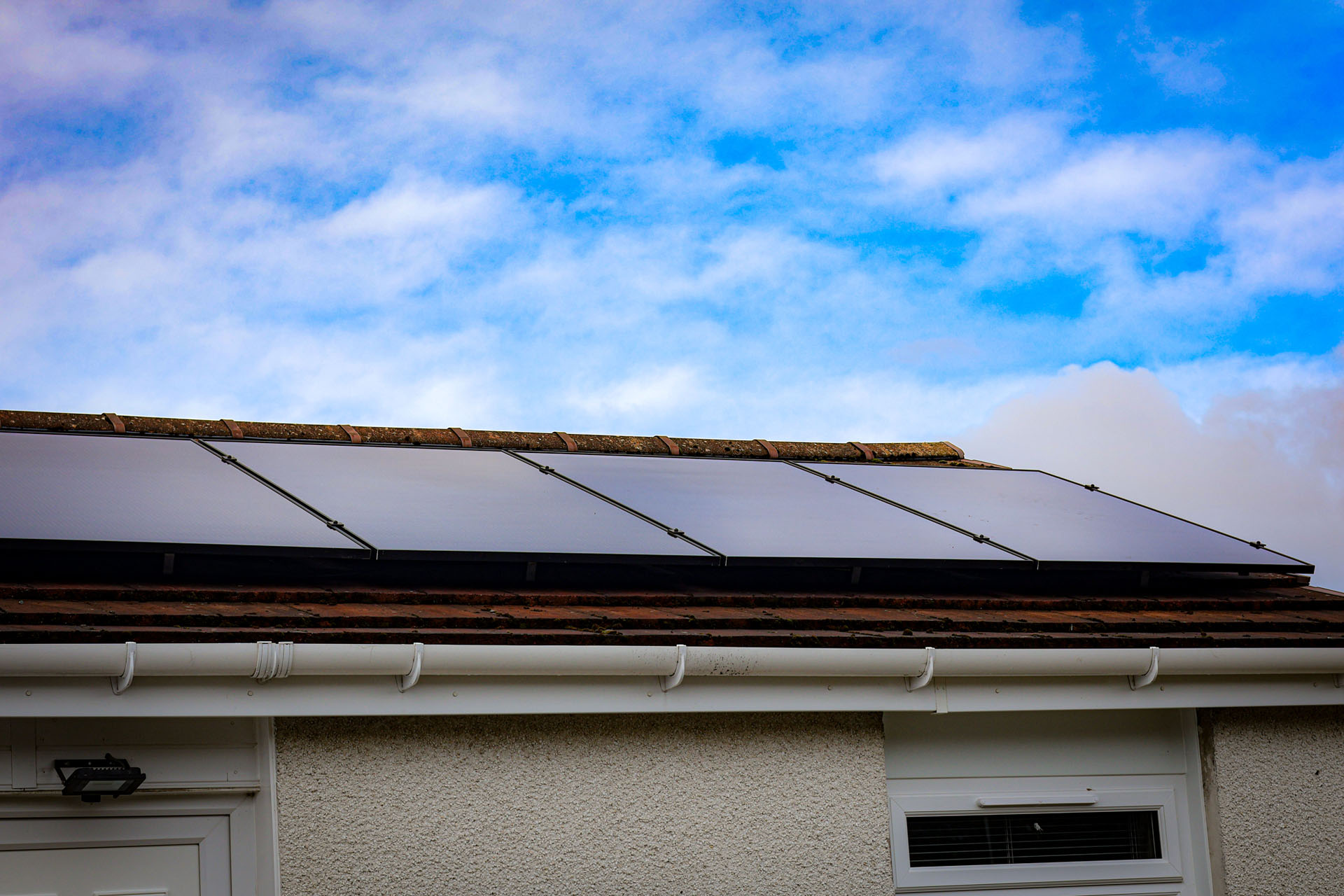Introduction
Scotland has set an ambitious target: achieving net zero emissions by 2045. As the world grapples with the impacts of climate change, Scotland is at the forefront of efforts to reduce carbon emissions and promote renewable energy. Central to this mission is the adoption of solar panels, a technology that, while often underestimated in Scotland’s temperate climate, holds significant potential for transforming the nation’s energy landscape.

Understanding Net Zero
Definition of Net Zero
Net zero refers to the balance between the amount of greenhouse gases emitted into the atmosphere and the amount removed or offset. Achieving net zero means that any carbon emissions produced are counterbalanced by actions such as carbon capture, reforestation, or the use of renewable energy sources.
Scotland’s 2045 Net Zero Target
Scotland’s government has set a legally binding target to achieve net zero by 2045, five years ahead of the UK-wide goal of 2050. This commitment reflects Scotland’s dedication to addressing climate change and transitioning to a low-carbon economy. The road to net zero is paved with efforts to reduce emissions across all sectors, from energy and transport to agriculture and industry.
The Importance of Reducing Carbon Emissions
Reducing carbon emissions is crucial in mitigating the effects of climate change. For Scotland, a country with a rich natural environment, the stakes are high. From rising sea levels to the impact on wildlife, the consequences of inaction are dire. This is where renewable energy, including solar power, plays a pivotal role.
Scotland’s Renewable Energy Landscape
Overview of Renewable Energy Sources in Scotland
Scotland is blessed with abundant natural resources, making it a leader in renewable energy. Wind and hydroelectric power are well-established, with wind turbines dotting the landscape and hydroelectric dams harnessing the power of water. However, solar energy, despite its potential, has been slower to gain traction. There are many common myths with solar in Scotland, the main one being that the panels wouldn’t generate enough energy due to Scotland’s climate and lack of sunlight. This is a hugely common misconception as you actually only require daylight to generate electricity through a solar energy system.
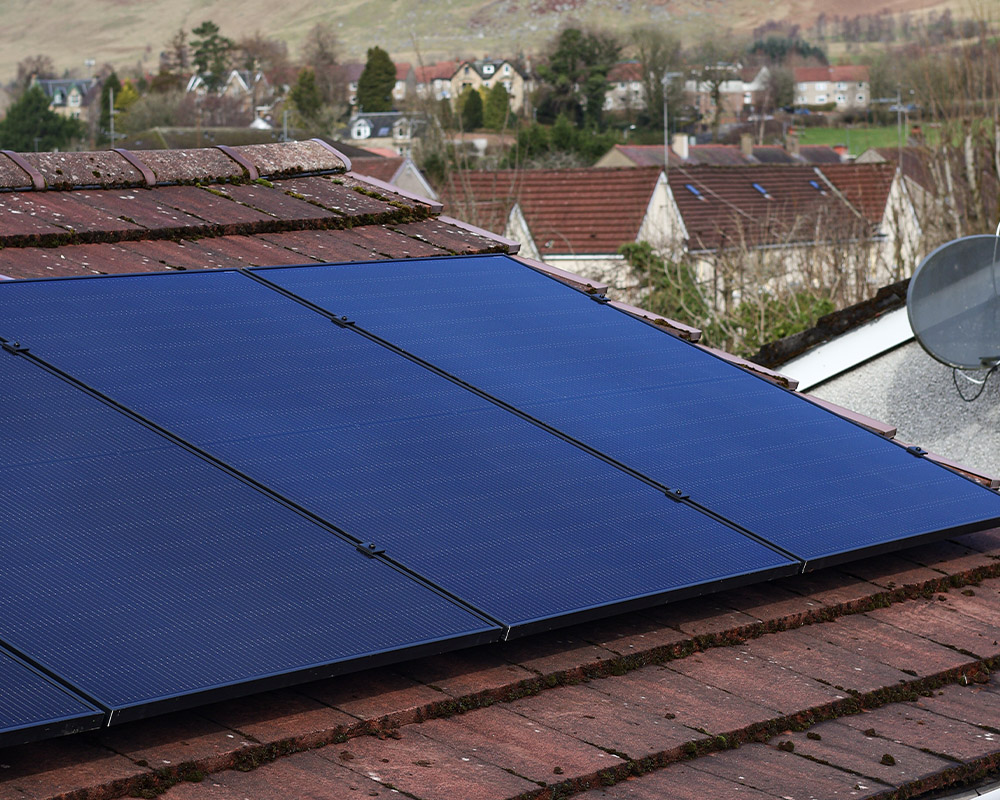
The Role of Wind, Hydro, and Solar Power
While wind and hydro are the heavyweights in Scotland’s renewable energy mix, solar power is increasingly being recognised for its potential. Solar panels, although less visible than wind turbines, can complement other renewable sources, providing a reliable and consistent source of energy, particularly during the summer months.
Current State of Solar Energy Adoption in Scotland
Solar energy adoption in Scotland has been growing steadily, though it still lags behind other forms of renewable energy. The perception that Scotland’s weather is unsuitable for solar power has been a significant barrier. However, this is changing as more people and businesses realise the benefits of solar energy, driven by advancements in technology.
The Potential of Solar Energy in Scotland
Misconceptions About Scotland’s Climate and Solar Power
One of the biggest misconceptions about solar power in Scotland is that the country’s cloudy and often rainy weather makes solar panels ineffective. However, solar panels do not require direct sunlight to generate electricity; they work on daylight, which Scotland has plenty of, even in the winter months.
Solar Energy Potential in Scotland
Scotland receives enough daylight to make solar power a viable option. In fact, the longer daylight hours during the summer months can result in significant energy generation. The key is to optimise the placement and technology of solar panels to maximise their efficiency, even in less sunny conditions.
Solar Panels and Carbon Emission Reduction
How Solar Panels Reduce Carbon Emissions
Solar panels generate electricity without producing carbon emissions, making them a clean alternative to fossil fuels. By reducing the reliance on coal, oil, and gas, solar energy helps to lower the overall carbon footprint. Each kilowatt-hour of solar energy produced is a step towards reducing greenhouse gases.
Contribution of Solar Energy to the Reduction of Scotland’s Carbon Footprint
Solar energy, though currently a smaller part of Scotland’s renewable energy mix, has the potential to make a significant impact on the country’s carbon footprint. As more solar installations come online, both on residential and commercial properties, the cumulative reduction in emissions will help Scotland inch closer to its net zero goal.
Challenges in Solar Energy Adoption
Climatic and Geographical Challenges
Scotland’s climate, characterised by frequent rain and overcast skies, is often seen as a challenge for solar energy adoption. Additionally, the geographical diversity, from urban centres to remote highlands, presents logistical challenges in installing and maintaining solar panels.
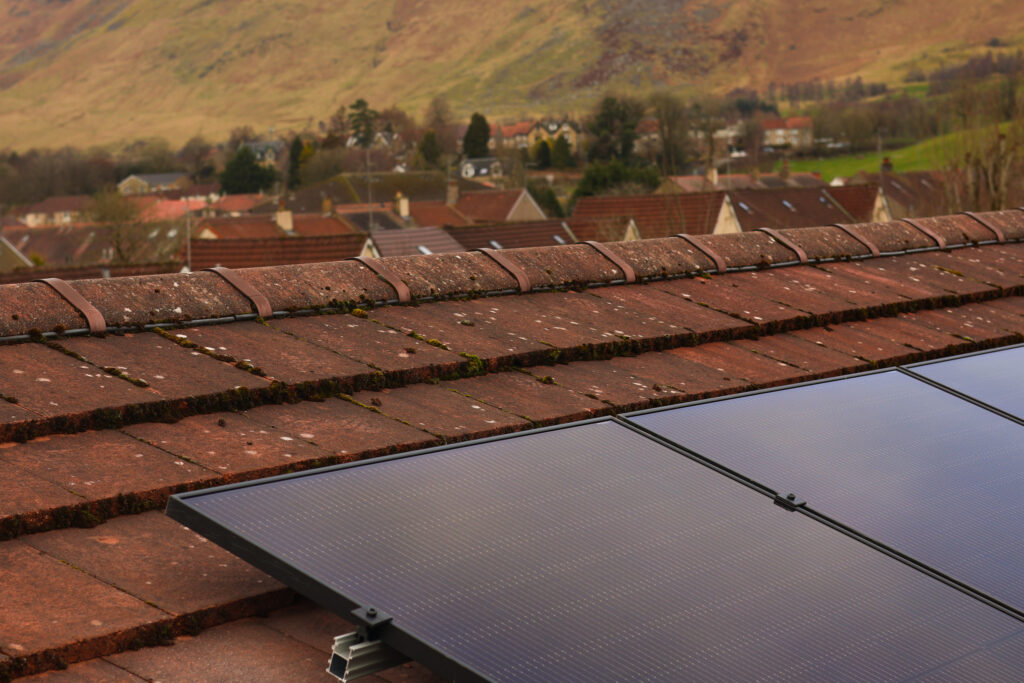
Financial Barriers and Initial Investment Costs
The initial cost of installing solar panels can be a significant barrier for many households and businesses. Although prices have fallen in recent years, the upfront investment required can still be prohibitive without financial assistance or incentives.
Public Awareness and Acceptance Issues
Public awareness and acceptance of solar energy are also challenges. Misconceptions about the effectiveness of solar panels in Scotland’s climate, coupled with a lack of understanding of the long-term benefits, can deter people from considering solar as a viable energy source.
Overcoming Challenges: Solutions and Innovations
Technological Innovations Improving Solar Efficiency
Innovations in solar technology, such as more efficient panels and improved battery storage, are helping to overcome the climatic challenges. For example, solar panels that can capture diffuse light on cloudy days or store energy for use during night-time or low-light conditions are particularly suited to Scotland’s environment.
Financial Assistance to Support Solar Energy Adoption
To address the financial barriers, there should be many more financial incentives introduced by the government. Currently certain homes can apply to be part of the ECO4 Scheme, but these are funded by the largest energy companies. It is imperative that the government step in and offer more financial assistance with solar energy systems.
Education and Awareness Campaigns
Education and awareness campaigns are essential in overcoming public acceptance issues. By providing clear information on the benefits of solar energy and addressing common misconceptions, these campaigns can encourage more people to consider solar panels as a viable option for their energy needs.
Cost-Benefit Analysis for Homeowners
For homeowners, the cost-benefit analysis of installing solar panels often shows a positive outcome. While the initial investment can be significant, the long-term savings on energy bills, coupled with potential earnings from selling excess power, make solar panels a financially sound investment.
Long-Term Impact on Household Energy Consumption
In the long term, solar panels can significantly reduce household energy consumption from the grid. This not only lowers energy bills but also decreases the household’s overall carbon footprint, contributing to Scotland’s broader environmental goals.
Commercial and Industrial Solar Adoption
Solar Energy in the Commercial Sector
The commercial sector in Scotland is increasingly adopting solar energy. Businesses are recognising the dual benefits of reducing operational costs and enhancing their green credentials by investing in solar panels.
Benefits for Businesses Adopting Solar Power
For businesses, the benefits of adopting solar power include lower energy bills, protection against future energy price increases, and a reduction in carbon emissions. Additionally, businesses can leverage their use of renewable energy as part of their corporate social responsibility (CSR) strategy, enhancing their reputation with customers and stakeholders.
Future Prospects for Solar Energy in Scotland
Predicted Growth of Solar Energy by 2045
The future of solar energy in Scotland looks promising. With continued investment and technological advancements, solar energy is expected to play a growing role in Scotland’s renewable energy mix. By 2045, solar power could contribute significantly to the country’s electricity needs, helping to meet the net zero target.
Role of Innovation and Research in Future Solar Developments
Innovation and research will be key to the future growth of solar energy in Scotland. Continued improvements in solar technology, such as more efficient panels and better energy storage solutions, will enhance the viability of solar power, even in Scotland’s challenging climate.
Potential Impact on Scotland’s Energy Independence
As solar energy adoption increases, Scotland could move closer to energy independence. By generating more electricity domestically from renewable sources, Scotland can reduce its reliance on imported fossil fuels, enhancing its energy security and resilience.

Public Engagement and the Role of Education
Importance of Public Awareness in Solar Energy Adoption
Public engagement is crucial for the widespread adoption of solar energy. People need to understand the benefits of solar power, not just in terms of cost savings but also in its role in reducing carbon emissions and combating climate change.
Educational Initiatives to Promote Solar Energy
Educational initiatives, from school programmes to public information campaigns, are vital in promoting solar energy. These initiatives can help to dispel myths, provide accurate information, and inspire the next generation to embrace renewable energy technologies.
Role of Schools and Universities in Fostering Solar Energy Knowledge
Schools and universities have a critical role to play in fostering knowledge about solar energy. By integrating renewable energy topics into the curriculum, these institutions can equip students with the knowledge and skills needed to drive Scotland’s energy transition in the future.
Scotland’s Path to Net Zero: The Road Ahead
Summary of Solar Energy’s Contribution to Net Zero
Solar energy is poised to play an essential role in Scotland’s journey to net zero. Despite the challenges, the potential benefits of solar power, from reducing carbon emissions to increasing energy independence, make it a crucial component of Scotland’s renewable energy strategy.
The Importance of Continued Investment and Innovation
Continued investment in solar energy, alongside ongoing innovation, is vital for realising its full potential. Scotland’s path to net zero will require the combined efforts of government, industry, and the public to support and expand solar energy adoption.
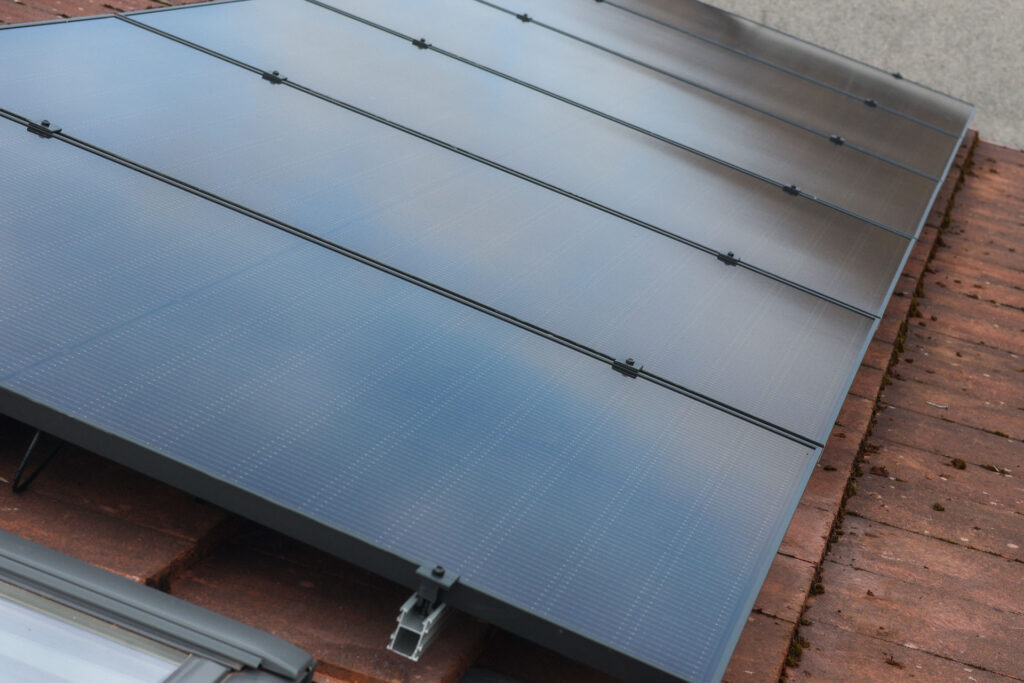
Final Thoughts on Achieving Net Zero by 2045
Achieving net zero by 2045 is an ambitious but achievable goal for Scotland. Solar energy, alongside other renewable sources, will be instrumental in meeting this target. By embracing solar power, Scotland can not only reduce its carbon footprint but also secure a sustainable and prosperous future for generations to come.
Conclusion
Solar energy is a key player in Scotland’s net zero ambitions. While challenges remain, the potential for solar power to contribute significantly to reducing carbon emissions and achieving energy independence is clear. By continuing to invest in and support solar energy, Scotland can lead the way in creating a greener, more sustainable future.
FAQs
How effective are solar panels in Scotland’s climate?
Solar panels are effective in Scotland’s climate, as they generate electricity from daylight rather than direct sunlight. Despite the frequent cloudy weather, Scotland receives enough daylight to make solar panels a viable energy source.
How do solar panels contribute to reducing carbon emissions?
Solar panels generate electricity without producing carbon emissions, reducing reliance on fossil fuels. This helps lower the overall carbon footprint and contributes to Scotland’s net zero ambitions.
Can businesses benefit from adopting solar energy in Scotland?
Yes, businesses can benefit from adopting solar energy through reduced energy bills, protection against future energy price increases, and enhanced green credentials, which can improve their reputation with customers and stakeholders.
What is the future outlook for solar energy in Scotland?
The future outlook for solar energy in Scotland is positive, with expected growth in adoption driven by technological advancements and continued government support. By 2045, solar energy could play a significant role in Scotland’s renewable energy mix, helping to achieve net zero emissions.
